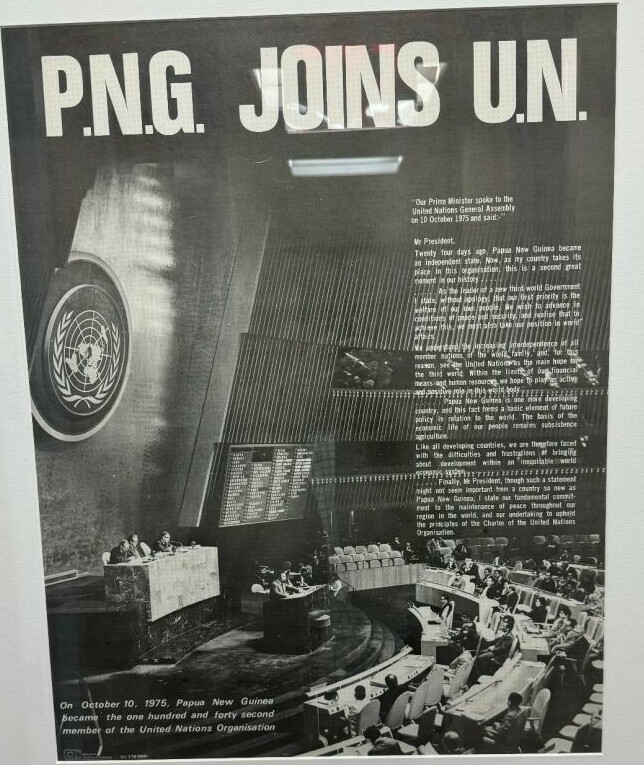The Second Great Moment In The History Of Papua New Guinea Occurred In 1975, Just 24 Days After Independence
The Second Great Moment in the History of Papua New Guinea
The Second Great Moment In The History Of Papua New Guinea Occurred In 1975, Just 24 Days After Independence.
Sir Michael Thomas Somare, the Founding Father of Papua New Guinea, delivered a poignant statement to the United Nations General Assembly in 1975, just 24 days after Papua New Guinea gained its independence from Australia.
His speech emphasized the country's commitment to prioritizing the welfare of its people, participating in world affairs, and playing an active role in the United Nations.
He also highlighted the challenges faced by developing countries within an inequitable world economic system and expressed Papua New Guinea's commitment to maintaining peace in the region and upholding the principles of the UN Charter.
Read the full quote of the speech below:

(Quote)
Mr President,
Twenty-four days ago, Papua New Guinea became an independent state. Now, as my country takes its place in this organisation, this is a second great moment in history… …As the leader of a new third world Government I state, without apology, that our first priority is the welfare of our own people. We wish to advance in conditions of peace and security, and realize that to achieve this, we must also take our position in world affairs. We understand the increasing interdependence of all member nations of the world family, and, for this reason, see the United Nations as the main hope for the third world. Within the limits of our financial means and human resources, we hope to play an active and positive role in this world body. ... Papua New Guinea is one more developing country, and this fact forms a basic element of future policy in relation to the world. The basis of the economic life of our people remains subsistence agriculture. Like all developing countries, we are therefore faced with the difficulties and frustrations of bringing about development within an inequitable world economic system. ... Finally, Mr President, though such a statement might not seem important from a country so new as Papua New Guinea, I state our fundamental commitment to the maintenance of peace throughout our region in the world, and our undertaking to uphold the principles of the Charter of the United Nations Organisation.(Unquote)
What can be learned and reflected from this first-ever speech by the First Prime Minister of the Independent State of Papua New Guinea, Late Grand Chief Sir Michael Thomas Somare?
1. Prioritizing the welfare of the people
Somare's emphasis on prioritizing the welfare of the people serves as a reminder to leaders and governments to always put the needs and well-being of their citizens first.
2. Active participation in world affairs
Somare's commitment to playing an active role in the United Nations highlights the importance of global engagement and cooperation for developing countries.
3. Recognition of the challenges faced by developing countries
Somare's acknowledgment of the difficulties and frustrations faced by developing countries within an inequitable world economic system highlights the need for support and fair treatment for these nations.
4. Commitment to maintaining peace
Somare's commitment to maintaining peace in the region serves as a reminder of the importance of promoting peace and stability in international relations.
5. Upholding the principles of the UN Charter
Somare's undertaking to uphold the principles of the UN Charter emphasizes the importance of adhering to international laws and agreements for the betterment of all nations.




Comments
Post a Comment